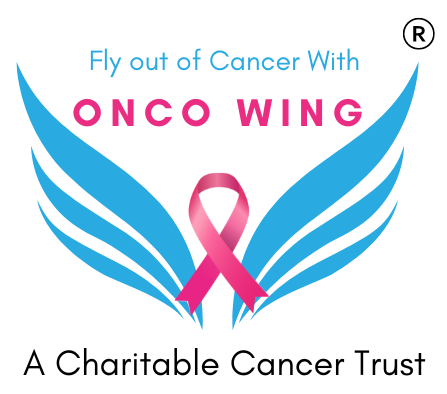
World-Class Cancer Care
World-class cancer care refers to the highest standard of healthcare available for the diagnosis, treatment, and management of cancer. It encompasses a multi-faceted approach that integrates cutting-edge medical technology, expert healthcare professionals, innovative treatment options, and compassionate patient care. The goal is not only to extend life but to improve the quality of life for patients diagnosed with cancer.
world-class cancer care includes access to multidisciplinary teams, including oncologists, radiologists, surgeons, nurses, psychologists, and dietitians. This team-based approach ensures that every aspect of a patient’s journey is supported, from diagnosis through treatment and into recovery.
Key Elements of World-Class Cancer Care
1. Advanced Diagnostics and Early Detection
World-class cancer care begins with accurate and early detection. The use of advanced diagnostic technologies such as AI-powered imaging, genetic testing, and next-generation sequencing allows healthcare providers to identify cancers at their earliest, most treatable stages. These technologies enable the detection of tumors that may not yet be visible to the human eye and allow for more precise diagnoses.
Early detection leads to better treatment outcomes, offering patients the possibility of less invasive therapies and higher survival rates. Regular screenings and the use of advanced diagnostics ensure that cancers are identified before they progress to more advanced stages.
2. Personalized Treatment Plans
One of the hallmarks of world-class cancer care is personalization. Every cancer is unique, and so is every patient. Advances in genomic medicine allow oncologists to tailor treatments to the genetic profile of both the patient and the cancer. This approach ensures that the therapies provided target specific mutations or characteristics of the cancer, making them more effective and reducing harm to healthy tissues.
Precision medicine, including targeted therapies and immunotherapy, has revolutionized cancer care. These treatments are designed to attack cancer cells more precisely, minimizing side effects and maximizing efficacy. As new genetic markers and cancer pathways are discovered, personalized treatment plans continue to evolve, offering patients the best possible outcomes.
3. Multidisciplinary Care Teams
World-class cancer care is not just about a single doctor or specialist; it involves a team of experts working together. A multidisciplinary team might include medical oncologists, surgeons, radiologists, pathologists, nurses, psychologists, dietitians, and palliative care specialists. This approach ensures that every aspect of a patient’s care is addressed.
For example, a patient might see an oncologist for chemotherapy, a surgeon for tumor removal, a radiation oncologist for radiation therapy, and a nutritionist to help manage side effects from treatments. This team-based approach ensures that each patient receives comprehensive care and support throughout their cancer journey.
4. Cutting-Edge Treatments and Clinical Trials
World-class cancer centers are often at the forefront of cancer treatment innovations. They offer access to the latest clinical trials, allowing patients to benefit from treatments that are still in development. This can be particularly valuable for patients with cancers that are resistant to standard treatments.
Advanced treatments available in these centers include:
- Immunotherapy, which boosts the body’s immune system to recognize and fight cancer.
- CAR T-cell therapy, where a patient’s T-cells are engineered to attack cancer cells.
- Gene therapy and targeted therapies, which focus on specific genetic alterations in cancer cells.
- Minimally invasive surgeries and robot-assisted procedures, which reduce recovery times and improve outcomes.
By providing access to the latest research, world-class cancer centers give patients the opportunity to receive the most advanced therapies available.
5. Holistic Care and Support Services
Cancer care goes beyond just medical treatments. World-class cancer centers emphasize holistic care, addressing the physical, emotional, and psychological needs of patients. Cancer can be a long and exhausting journey, and support services are critical for maintaining a patient’s well-being.
These support services include:
- Psychological support: Counseling, support groups, and mental health professionals help patients cope with the emotional challenges of cancer.
- Nutritional counseling: Dietitians guide patients through the nutritional demands of treatment and recovery.
- Palliative care: This focuses on providing relief from pain and other symptoms, improving comfort, and enhancing quality of life for patients with advanced cancers.
- Social work: Social workers help patients navigate the healthcare system, manage the financial and practical challenges of cancer treatment, and connect with community resources.
6. Access to Global Networks and Expertise
World-class cancer care extends beyond a local level. Leading cancer centers often collaborate globally, sharing research findings, best practices, and advanced treatment protocols. This means that patients at top-tier facilities are often treated with the latest global standards in care.
Many of these centers are also affiliated with prestigious research institutions, allowing them to offer access to groundbreaking clinical trials and experimental treatments. This global network of knowledge and expertise provides patients with the highest standard of care available.
7. Innovation and Research
World-class cancer care is deeply rooted in research and innovation. Top cancer centers are often involved in pioneering studies aimed at finding new ways to prevent, detect, and treat cancer. They conduct studies on promising therapies and collaborate with pharmaceutical companies and research institutions to accelerate the development of new cancer treatments.
These centers are often involved in studies focusing on genetic mapping, new drug development, immunotherapy, and early detection techniques. Their participation in clinical trials provides patients with access to cutting-edge treatments that may not be available elsewhere.
